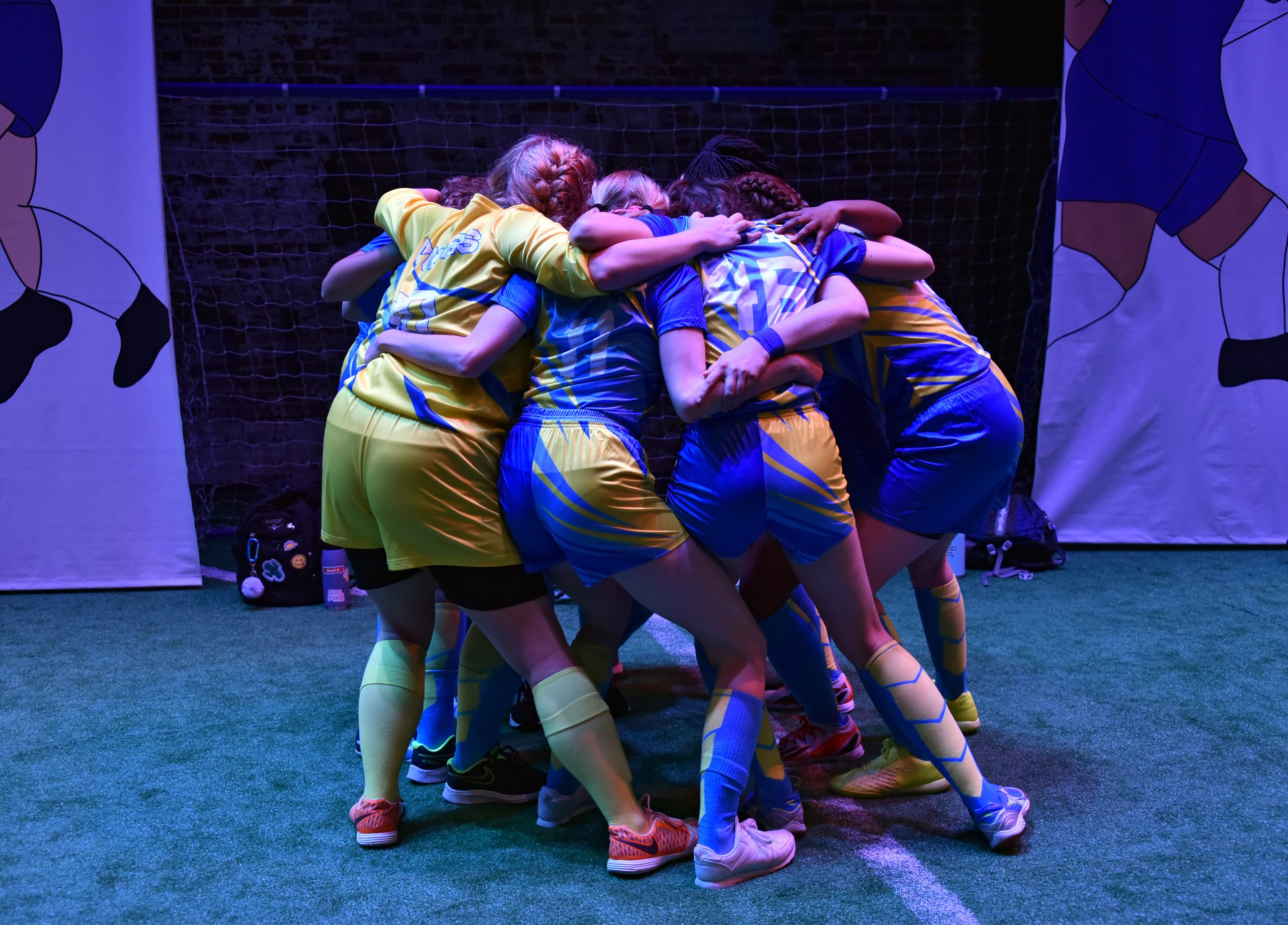Dramaturg’s Note | THE WOLVES
Photo by Craig Bailey / Perspective Photo
by Michael Pisaturo, Dramaturg
While there is evidence of women playing field-like games akin to soccer as early as China’s Tsin Dynasty in 250 BCE, it was not until the first World War – a time where women began taking part in the industrial workforce – that the first organized women’s soccer matches took place. Just over a year after the first women’s international match between England and Scotland though – as attendance at games skyrocketed to nearly 53,000 – the Football Association issued what would be a decades long ban on women’s matches being held on professional grounds, claiming that “the game of football is quite unsuitable for females and ought not to be encouraged.”
In spite of this setback and the obvious patriarchal pettiness that fueled it, the ban led many rugby leagues to open up their fields to women’s soccer matches and soon prompted the formation of the English Ladies Football Association.
Flash forward almost a century, and we have a group of girls navigating an entirely new host of challenges all the while confronting the same kind of societal pressures faced by those women nearly one hundred years prior. Now with the advent of social media and the complete saturation of our daily feeds with seemingly innumerable issues plaguing every corner of the world, we find ourselves simultaneously closer to and further from said issues than ever before.
In discussing her inspiration behind the play, Sarah DeLappe writes about an experience she had at an exhibit in the New Museum in New York featuring contemporary art from the Middle East and North Africa. “I was walking around and watching all of these metropolitan New Yorkers look at their iPhones in the middle of this incredibly affecting art about suicide bombings, and Syria, and the civil war in Lebanon, and then go back to drinking cold brew or talking about what they were doing that weekend.” The first scene she wrote in fact was “just two simultaneous conversations – one about the Khmer Rouge and one about the efficacy of tampons.”
On one end, the Cambodian Genocide of 1975 initiated by the totalitarian Khmer Rouge and its leader – former school-teacher turned tyrant, Pol Pot – slaughtered nearly 2 million civilians through starvation, work exhaustion, and government-led execution and had lasting, traumatic, and destabilizing repercussions felt throughout the globe. On the other, conversations surrounding menstrual products and feminine hygiene – specifically with those whose lives it most directly affects – are shunned from public forums and dismissed as taboo, adding further obstacles to an already mine-filled path young women are forced to traverse when coming of age while having their rights systematically stripped away from them.
These girls exist in a society where they are just as looked down upon for expressing opinions about the world as they are for expressing opinions about their world. Taking place “somewhere in suburban America” as DeLappe puts it, this play adds yet another layer to the aforementioned conflict by situating the team between the epicenters of blue, metropolis and the rural red, where political ambiguity and social repression reign supreme, leaving few opportunities for these incredibly important and deeply intimate conversations to be had anywhere but the closed practices of a recreational soccer team.
With little room for error, the Wolves are forced to pivot between topics of wildly different magnitudes (depending on who you ask) with equal parts comical clumsiness, periodic dissonance, and youthful wisdom, all the while gnawing on an orange slice.
And for that, they deserve everything.


